Despite initial silence, Iran’s political elites—from former presidents to senior clerics and members of the Supreme Leader’s family—have gradually challenged the government’s repressive policies. Several called for dialogue with demonstrators and compromises on issues of personal freedoms. Others urged more extensive reforms. In February, former Prime Minister Mir Hossein Mousavi called for a referendum on a new constitution. Their statements reflected the growing outrage, even among long-time regime insiders, over the brutal crackdown on protesters, which led to the arrest of more than 19,000 and trials that handed down the death sentence during the first four months.
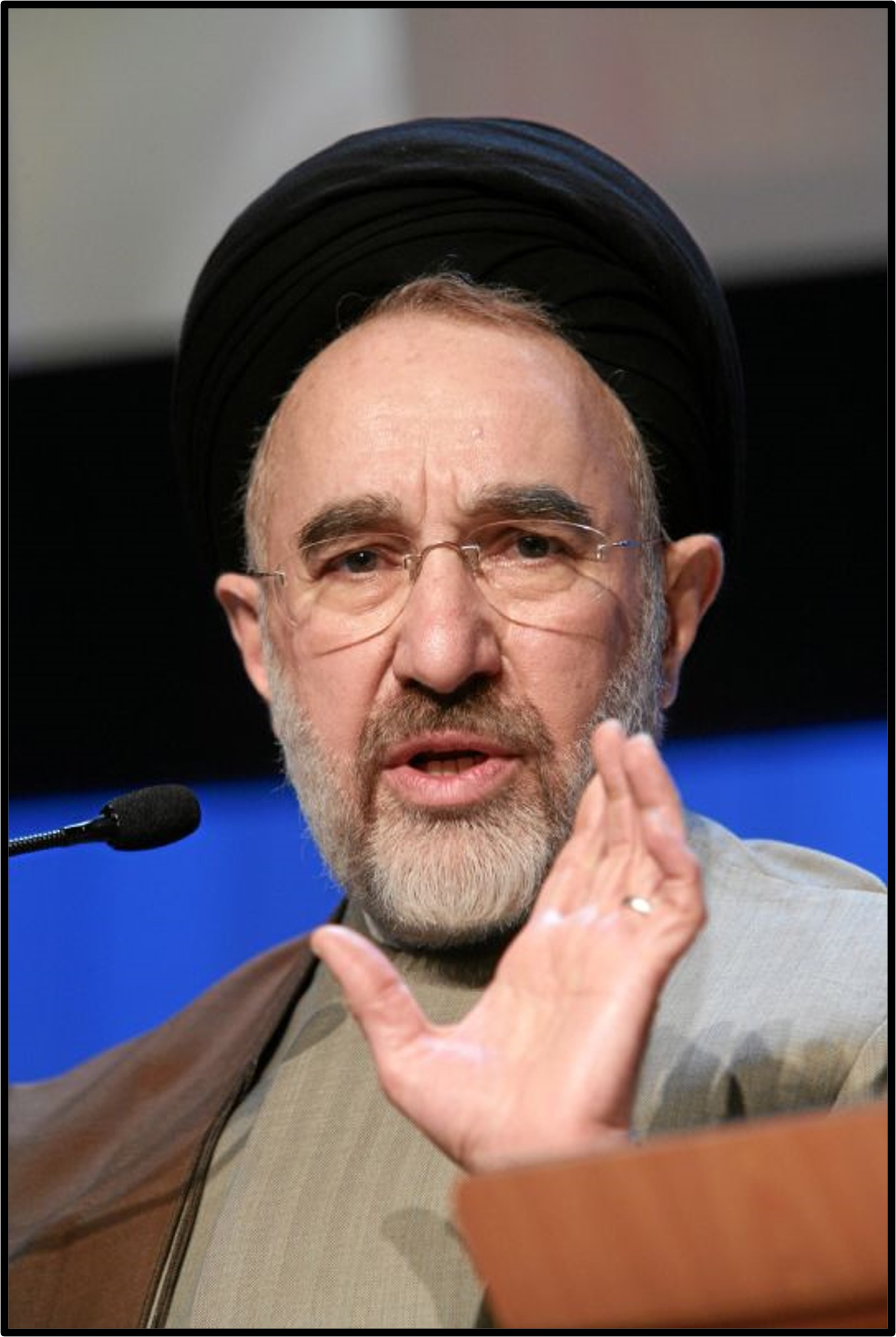
“Recognize the wrong aspects of governance and move towards good governance before it is too late,” warned former President Mohammad Khatami on December 6. The sister and niece of Supreme Leader Ayatollah Ali Khamenei declared that the regime had turned into a ruthless dictatorship. “I oppose my brother’s actions, and I express my sympathy with all mothers mourning the crimes of the Islamic Republic, from the time of Khomeini to the current era of the despotic caliphate of Ali Khamenei,” Badri Hosseini Khamenei, sister of the Supreme Leader, wrote in early December.
The government attempted to silence dissent from people who earlier served in government or who had links to the ruling inner circle. Faezeh Hashemi, former parliament member and daughter of former president Akbar Hashemi Rafsanjani, was detained on September 27 for “inciting riots.” Security forces detained Farideh Moradkhani, Khamenei’s niece, on November 23 for criticizing the government in a video statement the previous day. "This regime is not loyal to any of its religious principles and does not know any rules except force and maintaining power,” she had said.
The Cultural Council of the Qom Seminary, part of the religious establishment, warned clerics who supported the protesters to “take a lesson from the fate of the revolution's enemies.” In a letter, the council demanded that clerics “repent” their statements that had “given way to riot and insecurity.” The following is a rundown of key statements during the first three months of protests.
Political Elite
Former President Mohammad Khatami (1997-2005)
In an Instagram post on October 27, Khatami said that the “demand for a good, safe and fair life from people is a natural demand.” He urged officials to "hear the voice of criticism” and provide “material and spiritual satisfaction” for the people.
On November 14, Khatami called Iranian society “a wounded body.” He warned in an Instagram post that ignoring or denying “the bad situation imposed on people” would not end one of the biggest crises since the 1979 revolution. Arrests and “harsh treatments” would only increase the problem. Khatami also said that overthrowing the government was neither possible nor desirable even as he warned that the unrest could lead to “social collapse.” The root of the protests was an “incorrect method of governance.” The best way to “restore the lost confidence” of the public was through “self-correction of the system, both in its structure and its behavior," he said.
In a telegram statement on December 6, the eve of Student Day, he said that freedom and security should not be placed “in opposition to one another and, as a result, freedom is trampled under the pretext of maintaining security, or that security…is ignored in the name of freedom.” He called on the government to move towards good governance before it is too late.” He commended the “beautiful slogan” of “woman, life, freedom” as a reflection of the way Iranian society has developed. He lauded students and professors for their role in the demonstrations and warned that pressure on them was “not compatible with the principles and standards of freedom and human rights.”
On February 5, Khatami called for a “self-correction” to reform the Islamic Republic, including returning to the “spirit” of the constitution. He warned against calling for the overthrow of the regime and instead urged the government to obey the will of the nation. Khatami cited “widespread discontent” and acknowledged that people were fed up with both the government and reformists. But he remained hopeful that “non-violent civil methods” could "force the governing system to change its approach and accept reforms."
In his lengthy statement, Khatami proposed more than a dozen ideas, including:
- free and competitive elections
- amnesty for prisoners
- improving the judicial process
- lifting media restrictions
- fighting government corruption
- revising the role and composition of the Assembly of Experts, the Guardian Council and the Expediency Council
- curtailing the military's role in politics and the economy
- a foreign policy centered on dialogue rather than isolationism
Khatami is aligned with the Reform Front, which appealed on November 9 for a public referendum to address the unrest triggered by the death of Mahsa Amini on September 16. The Front demanded “immediate, courageous and innovative changes” to launch a national dialogue with “disappointed, dissatisfied and angry citizens.”
In July 2023, Iran deployed the morality police to the streets to enforce the dress code. Khatami warned against the move. “It seems that the danger of self-overthrow, which has been talked about many times, stands out more than ever with the return of morality police.” He said that the tensions could lead to the overthrow of the government and social collapse.
In August 2023, Khatami called for “self-reform” of the government given events that were “far from the Islamic Republic.” The ruling elite must prioritize justice and good governance. “Unless it is self-reformation, [the government's] end will be inevitable,” he told former prisoners from under the Shah. Khatami also called for fewer restrictions on candidates in the upcoming parliamentary elections.
Former President Hassan Rouhani (2013-2021)
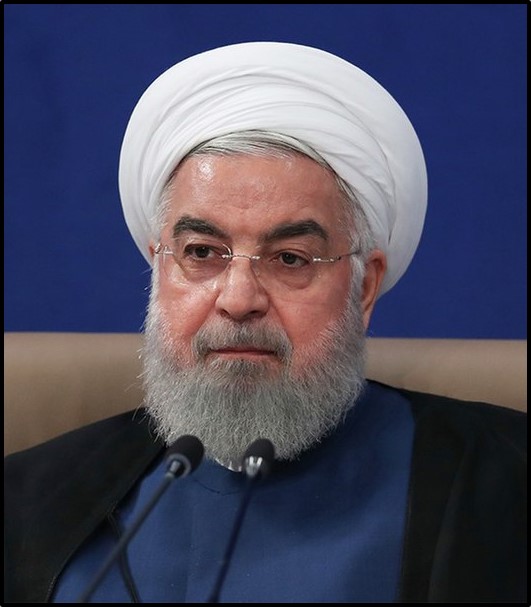
On February 1, former President Hassan Rouhani called for the formation of a government and parliament “with the support of the majority of the people.” He appeared to be referencing the vetting of candidates by the Guardian Council and low voter turnout in previous elections. “Internal cohesion and the ability to solve problems cannot be created with a minority government and parliament,” he told journalists. “The key to solving today's problems is to return to competitive elections.” He attributed Iran’s domestic problems to a deep social divide between the government and the public. “If we have the most advanced weapons… but we do not have the support of the people, we will fail,” he warned.
Rouhani, a centrist and longtime government insider, was president during the 2015 nuclear deal negotiations. Under Rouhani, the government eased social controls. He won two terms on a platform that emphasized moderation, resolving Iran’s stand-off with the West over its nuclear program, repairing Iran’s relations with its Persian Gulf neighbors, a reversion to sensible economic policies, and less interference by the security agencies in the lives of Iranians.
Former Prime Minister Mir Hossein Mousavi (1981-1989)
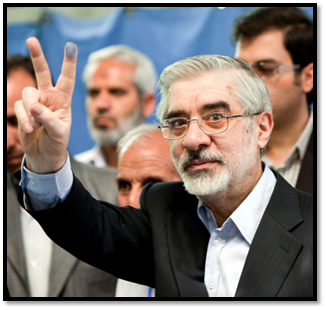
On October 1, former Prime Minister Mir Hossein Mousavi called on security forces to support the protesters. “The powers vested in you are for defense of the people, not their repression, for protection of the oppressed, not service to the powerful and mighty,” he said in a statement. “The hope is that you will stand on the side of truth and the nation. Your duty is secure the peace for the millions and especially the downtrodden, and not to consolidate the power of oblivious officials.”
In early February 2023, Mousavi called for a “fundamental transformation” based on “Woman, life, freedom,” the slogan of the protest movement. The words were “the seeds of a bright future, free of oppression, poverty, humiliation and discrimination,” he said in a statement. People “have the right to make fundamental revisions in order to overcome crises and pave the way for freedom, justice, democracy and development.”
Mousavi proposed holding:
- a referendum on changing the constitution or drafting a new one
- free and fair elections of a new parliament, which could draft a new constitution
- a referendum on the parliament's draft constitution
The reformist leader also condemned the government crackdown. Legitimate authority is not based on "weapons and oppression," he said. “Stubbornness, insisting on repressive methods instead of dialogue and persuasion, and refusing to take the smallest step towards realizing the rights of the citizens in the constitution... increased the distance between the rulers and the people,” he warned.
Mousavi also criticized the government for failing to deal with several crises ranging from “back-breaking inflation” to rampant corruption and environmental degradation. But the “crisis of crises” was the “contradictory and unsustainable” structure of the government, which “is not accountable and shirks responsibility,” he added.
Mousavi is a symbolic leader of the reformist movement. He was also a presidential candidate in 2009. His protest of the 2009 election results sparked the Green Movement demonstrations that brought millions of people onto the streets across Iran. He was placed under house arrest in 2011 for supporting the opposition.
Former Vice President for Cultural Heritage and Tourism Hossein Marashi (2004-2005)
In early February 2023, former Vice President for Cultural Heritage and Tourism Hossein Marashi said that “Iran is on fire, and that this fire will not be extinguished” unless the government and regime critics “move in the direction of serving the country’s national interests.” He called for a “collective national document” to solve the crisis in Iran.
Marashi criticized hardliners. “They are a minority that wants Iran to be in constant conflict with the rest of the world while its people are suffering from poverty and sanctions,” he said in an interview. “They do not have any solution for the country’s problems and are not entitled to speak for everyone in Iran and their power should be limited to the extent of their real influence in the society.”
The former vice president lauded Khamenei’s decision to grant limited amnesty to prisoners in February. The move was “the first but very important step,” but economic problems, including rampant inflation, required collaboration. “No one is hostile to the Islamic Republic, and everyone wants Iran to be governed with full pride,” Marashi said. “But people’s problems and issues can’t be solved except by referring to national wisdom and enlisting everyone’s cooperation.” He maintained that all people—including those who want to reform the country within the current constitution and those who want an end the Islamic Republic—should be respected.
Marashi heads the reformist Executives of Construction Party in Iran. He was vice president for cultural heritage and tourism under President Khatami. He had also served in other government roles since the 1980s, including governor of Kerman province, head of President Rafsanjani’s office, and member of parliament. In March 2010, Marashi began a one-year prison sentence upheld by an appeals court for spreading propaganda after the disputed 2009 elections. He was released in March 2011. He was reportedly banned from political activities.
Former Speaker of Parliament Ali Larijani (2008-2020)
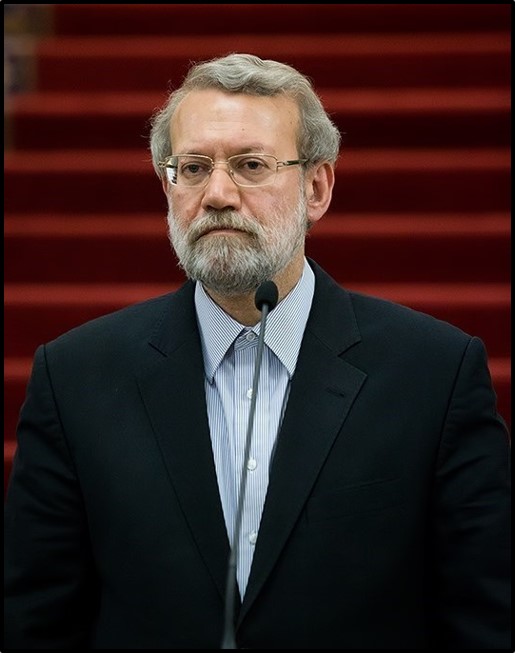
On October 12, former Speaker of Parliament Ali Larijani warned that the use of extreme measures to end the protests would only generate “extreme reactions. These are issues that should be considered with gentleness and tolerance,” he said in an interview with Hamshahri Online. “It's like a person has a migraine, but we write a prescription for him like a person with a heart disease... On the issue of hijab, we were in this situation. This is not the right way to pay attention to the issue of hijab, in this situation when people are having economic problems and once again highlighting the issue of hijab. This was both inappropriate and not the right way.” Larijani’s brother, Sadeq, was chief of Iran’s judiciary between 2009 and 2019; he now heads the Expediency Council.
Larijani also urged the government to considering dealing with the law on hijab the same way it has dealt with the ban on satellite dishes, a law only sporadically enforced. He noted that more than half of Iranian women did not fully observe the veil. (Many women wear scarves loosely or far back on their heads.)
Former Foreign Minister Mohammad Javad Zarif (2013-2021)
In an Instagram post on September 18, former Foreign Minister Mohammad Javad Zarif said that he was “ashamed and sorry” by the death of Mahsa Amini. On October 4, he warned that it was “a big mistake if we think we can ignore people” or use violence to “keep people on our side” in a meeting of professors at the University of Tehran. Zarif served under President Hassan Rouhani (2013-2021), a centrist.
Former Member of Parliament Faezeh Hashemi (1996-2000)
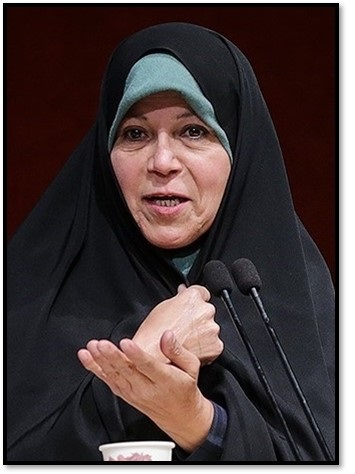
In late September, Faezeh Hashemi, a former member of parliament and daughter of President Hashemi Rafsanjani (1989-1997), was one of the most outspoken voices after Amini’s death. “Our youth want a future. They want to have a life,” she said. “They’re not trying to bring the regime down, although it can go that way. The younger generation is naturally alienated with the slogans and aims of the revolution.”
Hashemi added that the regime had committed “so many injustices” and blamed security forces for escalations tensions. “Those who have seen the protests know that, for example, if the youth set fire to garbage cans, it’s because the [security forces] have used tear gas and they want to neutralize it. Or when they beat a member of the security forces it’s because they have been attacked and they’re defending themselves.” On September 27, she was arrested for “inciting riots.” In early January 2023, the judiciary sentenced Hashemi to five years in prison for "propaganda" against the government. Hashemi founded Iran’s first woman’s daily newspaper, Zan, in 1998. She had been detained several times since 2009 for participating in previous protests.
Minister of Cultural Heritage, Handicrafts and Tourism Ezzatullah Zarghami (2021-)
On November 6, Minister of Cultural Heritage, Handicrafts and Tourism Ezzatullah Zarghami, a conservative, urged the government to compromise on implementation of the hijab law. “Today, our young girls and students walk in the street without headscarves. So what? Did the lack of hijab destroy the revolution and the system?” he asked rhetorically. “Reform is needed, and we should undergo it now.” Zarghami acknowledged that the government “sometimes makes mistakes.” Between 2004 and 2014, Zarghami previously headed Islamic Republic of Iran Broadcasting, the primary state broadcasting outlet.
Former Government Spokesman Ali Rabiei (2019-2021)
In late January 2023, former government spokesperson (2019-2021) and labor minister (2013-2018) Ali Rabiei said that the government needed to reform economic, cultural and media policies in response to the protests. “Ballot boxes can turn the outcry in the streets into systematic behavior,” he said at a seminar on the socioeconomic and political consequences of the demonstrations.
Rabiei warned that investors and entrepreneurs were leaving Iran. “Those involved in business have very well realized that the most important impact of recent protests is lack of confidence in the economy and lack of predictability of economic trends,” he added. “Lack of investment in recent years is an outcome of insecurity.” He also called on officials to avoid foreign policy moves that could incur more economic sanctions. Rabiei served as spokesperson and labor minister under President Rouhani.
Member of Parliament Shahryar Haydari
On December 13, member of parliament Shahryar Haydari recommended that the judiciary pardon non-violent protesters. “The country cannot be controlled with military confrontations with protesters,” he said in an interview with Rouydad24, a reformist news outlet. Haydari, a member of the parliamentary National Security and Foreign Policy Commission, said that the commission would craft recommendations—particularly economic measures—for the government in response to the ongoing unrest. He also said that President Ebrahim Raisi should be held responsible for the challenges facing Iran.
Former Rouhani presidential aide Mohammad Reza Salehi
In late January 2023, Mohammad Reza Salehi, a former presidential office logistics chief under President Rouhani, reportedly called for limits on Khamenei’s executive powers. The reformist said that Khamenei should agree to the limits to curb the next supreme leader—who may refuse potential reforms in the future—in a meeting with provincial governors; former presidential aides; and Eshaq Jahangiri, a former vice president under Rouhani.
Salehi reportedly told the group that reformists and moderates can wait for a foreign military attack against Iran, join protesters and overthrow the government, wait for the government to fall apart due to corruption, or work toward reforms by restricting the power of non-elected positions. He recommended pushing for reforms.
Salehi condemned the government’s economic policies. “In the budget bill the government’s revenue is supposed to increase by 40 percent while taxes are to rise by 60 percent,” he said. “This comes while the cash handout to the poorer Iranians will not be increased, and public employees will receive just a 20 percent raise. This will only increase poverty in Iran.”
He also criticized the government for repressing the protests. “What took place was a protest not a riot,” Salehi asserted. “Those detained were not tried fairly. Hasty trials led to executions which was tantamount to systematic massacre.”
Salehi called on Jahangiri to persuade Khamenei to hold elections and support the rights of Iranians. He reportedly added that Iran should vote on restoring relations with the United States, agreeing to the nuclear deal, halting restrictions on electoral candidates, and limiting military involvement in political issues.
Senior Clerics
Seyyed Hassan Khomeini
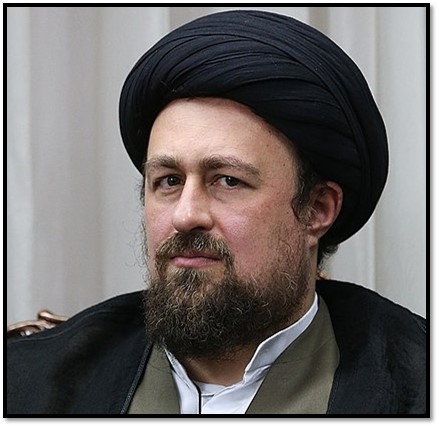
In an Instagram post on September 16, Seyyed Hassan Khomeini, a reformist cleric and the grandson of revolutionary leader Ayatollah Ruhollah Khomeini, called on the judiciary to deal “immediately” with the “culprits” responsible for Amini’s death. In early October, he publicly supported the right of any Iranian to protest peacefully. He urged the government to start a dialogue with “different parts” of society and “learn to listen to their pain and apologize to them if necessary.” He attributed public grievances to the “closure of legal avenues” to challenge government policies.
In an interview with Etemad on November 7, he warned that the government “had better begin to listen to the people.” In 2021, Khomeini considered running for president. In 2016, he was disqualified from running for the Assembly of Experts, which selects the supreme leader.
Grand Ayatollah Asadollah Bayat Zanjani
On September 17, Grand Ayatollah Asadollah Bayat Zanjani, a dissident cleric who opposed the concept of a supreme leader, called the “behaviors” responsible for the “regrettable” death of Amini “illegal, irrational and illegitimate.” The use of force by “vigilante” forces, he said, “have never led to the expansion and establishment of any divine and human values in any society.” In a fatwa, the elderly cleric said all Muslims were obliged to “defend against plainclothes agents who attack protesters with guns or knives.”
Grand Ayatollah Mohammad Javad Alavi Boroujerdi
On September 18, Grand Ayatollah Mohammad Javad Alavi Boroujerdi, an influential dissident cleric, lamented Amini’s death as “very bitter.” On October 21, he added that the public had a “right” to criticize the leader of a Muslim society, “whether the criticism is justified or not.” Boroujerdi also called on the government to treat detained protesters with mercy. He also said that Iran’s press should be “free” and that “different thoughts should be expressed on state television.”
Grand Ayatollah Hossein Nouri Hamedani
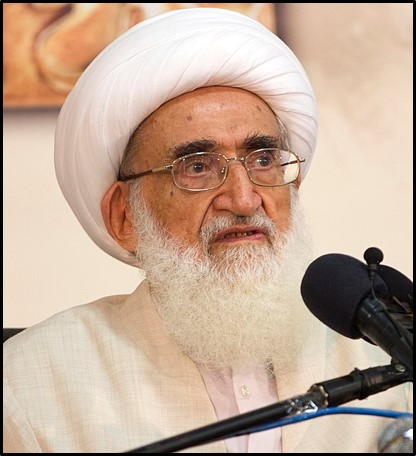
On September 25, Grand Ayatollah Hossein Nouri Hamedani, a conservative cleric close to both of Iran’s two supreme leaders, called on the government to “to listen to the people, resolve their problems, and show sensitivity to their rights.” He condemned any “insult” or “attack” on basic rights.
Supreme Leader’s Family
Badri Hosseini Khamenei (sister of Khamenei)
In an open letter in early December, Badri Hosseini Khamenei, the Supreme Leader’s sister, denounced Iran’s political system. “The regime of the Islamic Republic of Khomeini and Ali Khamenei has brought nothing but suffering and oppression to Iran and Iranians,” she wrote. “I hope to see the victory of the people and the overthrow of this tyranny ruling Iran soon.” She also called on “Khamenei's Revolutionary Guards and mercenaries” to join the protests “before it is too late.” Badri Khamenei wrote the letter after her daughter, Farideh Moradkhani, was detained in late November for condemning the government.
Farideh Moradkhani (niece of Khamenei)
In late November, Farideh Moradkhani, the niece of Supreme Leader Ayatollah Ali Khamenei and a human rights activist, called on foreign governments to sever ties with Tehran because of its ruthless tactics in dealing with nationwide protests. “O free people, be with us and tell your governments to stop supporting this murderous and child-killing regime,” Moradkhani said in a video posted on YouTube by her brother days after her arrest. “This regime is not loyal to any of its religious principles and does not know any rules except force and maintaining power.” She criticized sanctions imposed by foreign governments as only “ridiculous and laughable” responses.
Moradkhani praised the “remarkable courage” of protestors—“lions and lionesses”—who were fighting “Satanic forces of evil” in the “murderous, child-killing” regime with only their bare hands. She compared Khamenei and revolutionary leader Ayatollah Ruhollah Khomeini to Adolf Hitler, Benito Mussolini, Muammar Qaddafi and Saddam Hussein. Moradkhani’s father was a Shiite cleric and critic of the government who was married to Khamenei’s sister.
Mahmoud Moradkhani (nephew of Khamenei)
In late January 2023, Mahmoud Moradkhani, the nephew of Khamenei, said that the supreme leader was “devoid of religious and civil legitimacy and is incompetent in religious sciences.” He also called for the “swift toppling of the regime in Iran” during an interview in Paris. Moradkhani described Khamenei as “the butcher of the people.” There was “no hope for reforming the regime from within. Therefore, there is no alternative to overthrowing it,” he said. “Khamenei cannot take a single step back, so his plan is to resort to permanent repression.” People had no choice but to resist, Moradkhani added.
